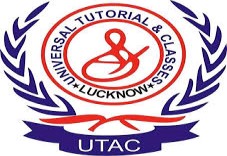Education is meant to open our minds and deepen our knowledge. Through school and university we learn how to organize and discipline ourselves, to act as members of a cohesive team and how to become valuable citizens. Contrary to what we are often made to believe, not everyone has the resources, the inclination, or indeed, the need to obtain a postgraduate degree.
In fact, unless you are aiming for a career in research or a niche specialization in your chosen field, almost everything that you need to know in order to obtain your dream job is actually available for you to learn during your undergraduate years.
No matter what profession you are aiming for, you must have a combination of technical know-how along with transferable skills and soft skills. This article will point out to you how you can extract the most out of the experiences and resources available to you at university or college so that you can get your dream job.
Managing Time Effectively
The university experience exposes you to all kinds of activities, both academic and extracurricular. Timetables are complicated and it is difficult to plan a schedule in such a way that you manage to squeeze in time for classes, sports, assignments, hobbies and even part-time jobs or personal commitments. You can learn how to organize your time effectively by treating every semester, assignment and exam as a mini-project in itself.
Read your schedules in advance and use a digital planner to mark out time blocks. Now organize your daily activities around this schedule, factoring in the time it takes to commute or to cook, clean, sleep, eat, etc. Use smartphone apps and synchronize these with your planner so that you always able to access your schedule on the go. This will ensure that you are never late to a class and never miss a deadline. Every company values punctuality and the ability to plan ahead.
Similarly, if you are struggling to manage complex assignments, try taking professional assistance from an essay writing service like Lifesaver essays for the first one or two projects. Choose a service where you can communicate directly with the writer and pick on their brains. Ask them about their methodology. Request drafts at various stages of progress so that you can learn how an expert attacks a complex task. Soon, you will learn how to apply these skills yourself.
Communicate Powerfully
There can never be enough emphasis on communication skills. These will serve you well in all aspects of life and not just your professional life. You may not be very comfortable with public speaking or group discussions in class. But these actually provide the perfect low-risk opportunities for testing out and building on communication skills.
The next time you are invited to speak on stage or asked to give a demonstration or a seminar, accept the challenge. Later, ask for feedback and build on the weak areas. Learn how to use gestures and words in tandem to express yourself. Take the help of images and slide presentations to make yourself understood. The most important thing is to get your point across.
Whether or not you intend to work in any area where you have to directly represent your company, public relations and communication skills are always invaluable. You may need to negotiate with clients, with superiors or even with staff for the best possible performance. When a professional pitch needs to be made to an important client, you will be the first choice to lead it.
Teamwork and A Spirit Of Healthy Competition
Every management workshop aims to teach employees all about team building and collective ownership. You can get ahead of the curve by developing these skills years in advance. Hands on projects at university offer ideal opportunities to learn to collaborate with peers. Research projects often require group-work, close coordination and sharing of information. In fact, sports too offer a great way to learn to divide duties and work as a unit.
In this way, you learn not only to follow but also to lead. You learn to value the input of each member and also to negotiate conflicts in a constructive way. These are challenges that are bound to come up at the workplace with the difference being that the stakes will be much higher. You will always have to work in a team or manage several at a time. You will have an understanding of the psychology of your peers and you can learn how to motivate them to deliver their best. Grabbing this experience at university will grant you an enormous edge.
Digital Skills And Manual Skills
Most universities are equipped with computer labs and workshops to cater to a variety of interests. If your course allows it, try to combine core lessons with additional electives that can give you important transferable skills. Take the opportunity to learn different software for word-, image-, and sound-processing, accounting, record-keeping, presentation design, note-taking and data visualization. To add yet another dimension to this, try to incorporate a working knowledge of programming as well.
Every individual should have some basic and specialized manual skills. This is not to say that you should end up as the office handy-man, but it never hurts to know the basics of carpentry, plumbing and even car maintenance. When you have an understanding of how to manipulate objects and spaces using common tools, you can help overcome simple challenges that often cause delays in important professional tasks. Why rely on someone else to do something you can do yourself?
Most universities also offer instruction on first aid and fire and health safety. Make the best of these inputs so that you become not only an invaluable employee but also a valuable citizen.
Language skills
Globalizationis old news by now. No matter what profession you are in, you will always have to deal with individuals or groups from a different cultural or social background. In fact, if you intend to work in a large company with an international presence, then language skills can place you a cut or two above the rest.
There’s no better place to learn a new language than at university. Join a foreign language class or even a film club. For more in-depth and wide-ranging cultural experiences, sign up for music or dance classes that expose you to a variety of international and regional styles. If foreign exchange trips, study-abroad programmes or even short study trips are available, don’t miss out on these opportunities.
Even if you have no such facilities or foreign students to learn from at university, you can make use of language learning apps and online services that are tailored especially for the needs of students. These are designed to help you master spoken language, colloquial usage and cultural references so that your knowledge is actually applicable in real world situations.
These are five important sets of skills that you can gain through the course of your education to best equip you for a fulfilling professional career. With these in hand, only your imagination is the limit. Your dream job need no longer remain just a dream.
Similarly, if you are struggling to manage complex assignments, try taking professional assistance from companies like Lifesaver Essays-cheap essay writing service for the first one or two projects. The company you choose should offer you value for your money including giving you good guarantees, a responsive team and qualified writers. Choose a service where you can communicate directly with the writer and pick on their brains. Ask them about their methodology. Request drafts at various stages of progress so that you can learn how an expert attacks a complex task. Soon, you will learn how to apply these skills yourself.
You Might Want To Read:
Neet Coachings, Tangent And Normal, Math Problems, Chitales Personalised Learning Center Clpc, Best 5 Gre Coaching Institutes In Bangalore, Icfai University Mba Mock Test Paper 23, Sample Question Paper 2 2012, Opportunities Of Employment, Narayana Delhi, Mapping










Like what you read? Give author a thumbs up?
Bookmark this article to read later, drop a remark in comment section and share with your friends..